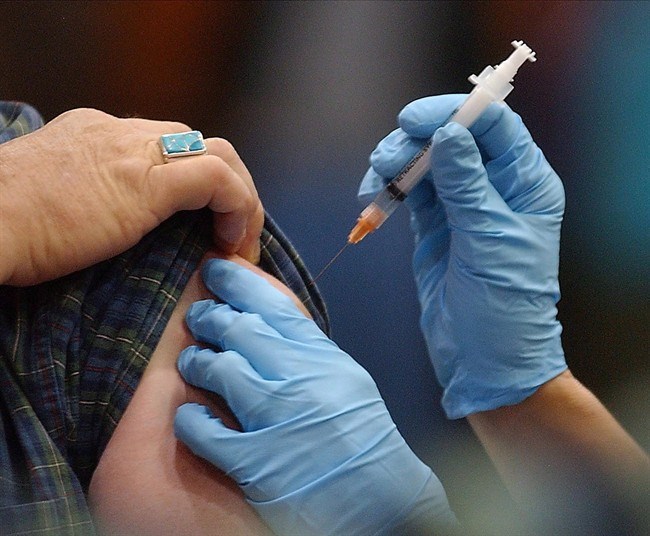Conspiracy theories abound concerning vaccinations, but don’t be too quick to dismiss all of them. There is, in fact, a powerful and well-documented worldwide vaccination conspiracy.
However, the intent of this conspiracy is not to take over our minds or turn us into zombies, but to eliminate the death toll from infectious diseases. We should all be part of this conspiracy, and most of us probably already are.
Vaccination is one of the world’s most amazing medical advances. Along with clean water and sanitation, it has saved millions of lives.
Consider smallpox, once one of the world’s most dreaded diseases. In the 20th century alone, smallpox killed an estimated 300 million people, but through vaccination, the disease was eliminated from the planet. The World Health Organization certified the eradication of smallpox in 1979.
Polio was relatively uncommon in the 1800s, but became one of the most feared diseases of the 20th century. While most of those infected by the disease recovered with few ill effects, one or two per cent suffered paralysis, and thousands of adults today still suffer the effects of childhood polio.
By 1994, vaccination had eliminated the disease from the western hemisphere, and it exists today only in a few pockets, mostly in Africa and the Middle East. Efforts are underway to eliminate polio entirely, and those efforts have a good chance of succeeding.
Measles outbreaks were once common. Before the vaccination era, measles epidemics occurred every two or three years, causing 50 to 75 deaths in sa���ʴ�ý each year, along with 5,000 hospital emissions and 400 cases of encephalitis. Worldwide, measles caused 2.5 million deaths a year, mostly young children.
Between 2000 and 2013, vaccines resulted in a 75 per cent decrease in measles deaths around the world.
The same story can be told of a range of once-common childhood diseases that have been greatly reduced.
That’s cause for much comfort, but it’s also cause for a misguided complacency — vaccinations have kept the disease at bay; some might reason, therefore, that they do not have to immunize their children.
A small percentage of people fear vaccinations, believing them to be the cause of other ailments. Some oppose vaccinations for religious or philosophical reasons.
The result is that these diseases keep coming back, most notably measles, because a few refuse vaccination.
As University of Victoria biochemist Terry Pearson points out, those who fail to have their children vaccinated make measles outbreaks possible. Pearson led a panel discussion on global epidemics this week during UVic’s IdeaFest.
“There’s the very real possibility that these once readily controlled diseases start to spread because we don’t have so-called herd immunity,” Pearson says, the point at which enough people — 95 per cent or more for measles — have been vaccinated to prevent the spread of the disease.
Recent measles outbreaks in sa���ʴ�ý and elsewhere have occurred because of unvaccinated people, putting at risk those too young or unable to be vaccinated because of other health concerns.
The toll from the Ebola outbreak in Africa is approaching 10,000 and still rising, and researchers are trying to develop a vaccine.
Yet there’s an inexpensive and effective vaccine for measles, and still the disease causes 400,000 deaths a year around the world.
It’s obvious more people need to join the vaccination conspiracy.



